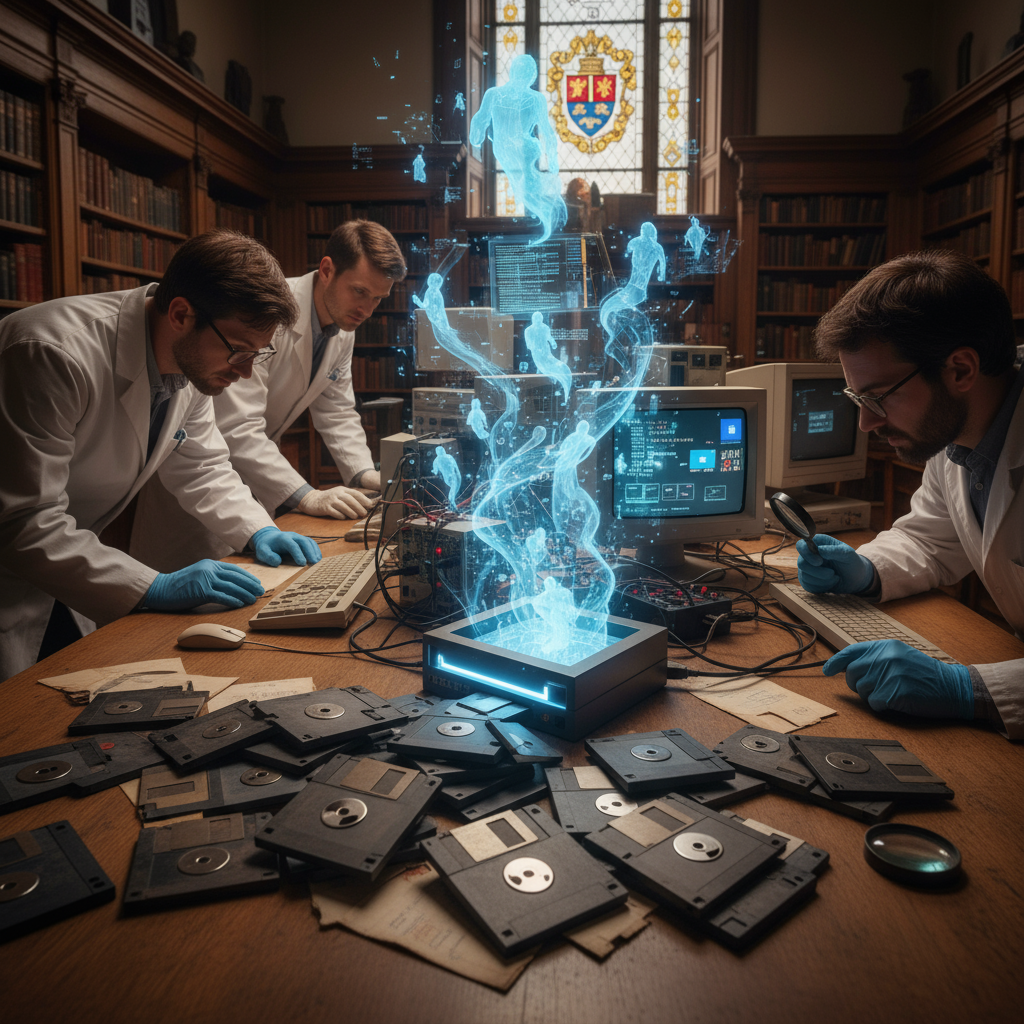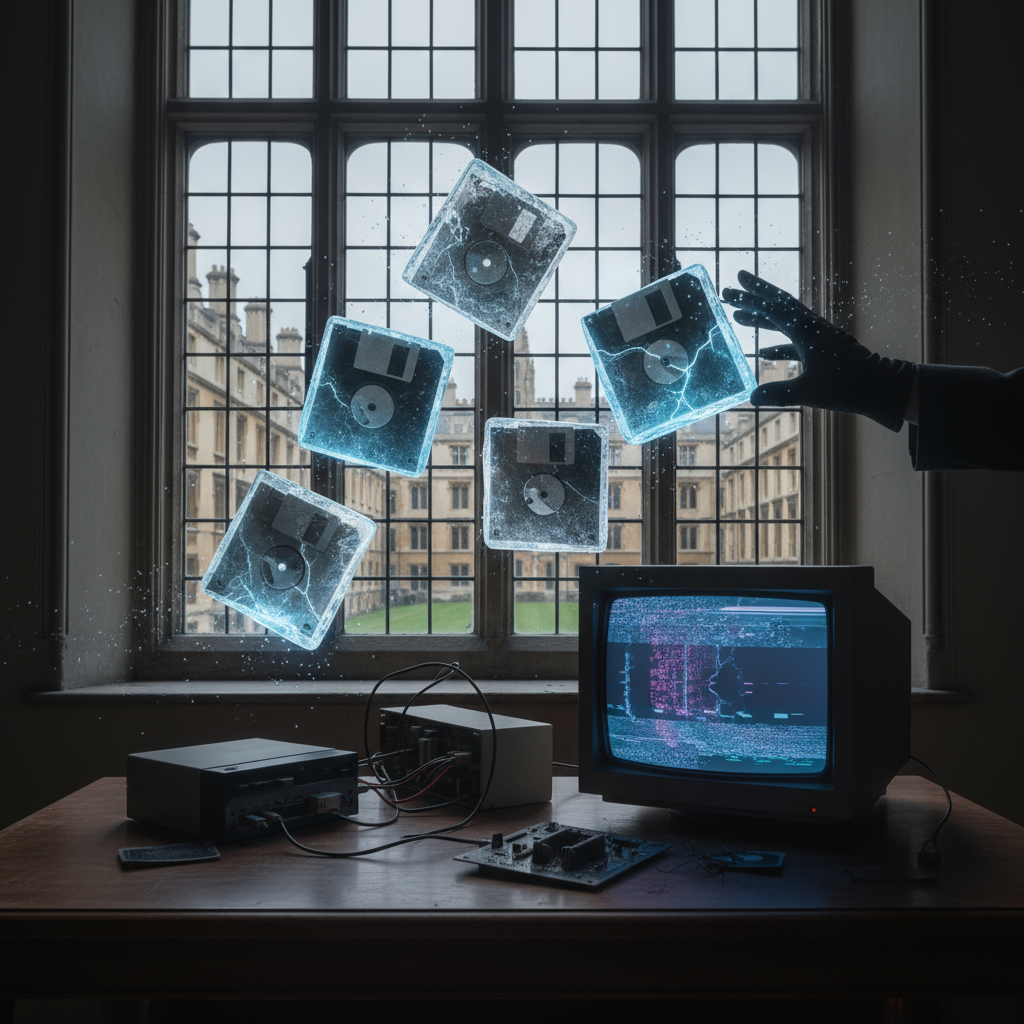Unearthing Digital Ghosts: Cambridge University’s Floppy Disk Rescue Mission

Remember the satisfying *clunk* of a floppy disk drive, the whir of the motor, and the anticipation as your cherished files slowly loaded? For a generation, these flimsy squares of magnetic media were the pinnacle of portable data storage. Before USB drives, before cloud computing, floppy disks held everything from school essays and business documents to nascent digital art and personal memoirs. But as technology barreled forward, these once-ubiquitous disks became obsolete, their contents gradually slipping into the digital abyss – until now. Cambridge University has launched a fascinating and vital project to rescue this trapped data, a testament to the enduring value of digital heritage.
The Silent Crisis of Trapped Data

The problem with technological leaps is often what gets left behind. Floppy disks, despite their pivotal role, are incredibly vulnerable. They are susceptible to magnetic degradation, physical damage, and the simple obsolescence of the hardware required to read them. Try finding a functioning floppy disk drive on a modern computer today. Even if you do, the chances of the disk itself being readable after decades are slim. This creates a silent crisis: countless gigabytes of information, potentially holding significant historical, scientific, or personal value, are locked away, effectively lost.
Think of the early days of personal computing. Researchers sharing groundbreaking findings, artists experimenting with nascent digital tools, writers storing their drafts, and individuals simply documenting their lives – all relying on floppy disks. Much of this data represents the very early iterations of digital culture and innovation. Losing it is not just about nostalgia; it’s about losing a crucial part of our recent digital history and the foundational work that led to today’s technological landscape. Cambridge University’s initiative highlights the urgency of preserving these digital artifacts before they degrade entirely.
Cambridge’s Digital Archaeology Project
The project at Cambridge University is more than just plugging in old hardware; it’s a meticulously planned digital archaeology excavation. The team faces a multi-faceted challenge. First, there’s the physical state of the disks themselves. Many have been stored in less-than-ideal conditions, leading to mold, dust, and magnetic deterioration. Specialized techniques are often required to clean and stabilize these fragile objects without causing further damage.
Next comes the hardware. Finding and maintaining working floppy disk drives, particularly for various historical formats (5.25-inch, 3.5-inch, single-density, double-density, etc.), is a significant undertaking. The project likely involves a collection of vintage computers and custom-built emulators to interact with these ancient storage devices. Beyond the hardware, there’s the software challenge. Different operating systems and applications from decades past used proprietary file formats that modern computers can’t natively understand. The team must develop or acquire specialized software tools to interpret these old data structures, essentially translating a lost digital language. This process requires a deep understanding of historical computing architectures and data encoding.
What Treasures Lie Within? Examples and Insights
The potential treasures hidden on these disks are vast and varied. Imagine unearthing early drafts of renowned academic papers, shedding light on the thought processes of brilliant minds. We could discover groundbreaking scientific data that was never fully digitized or published in an accessible format. Think of early environmental surveys, experimental physics results, or nascent genomic research from the dawn of digital data collection.
Beyond academia, there’s the rich tapestry of cultural and personal history. Early digital art, experimental music compositions, or the very first interactive narratives created on personal computers could be brought back to life. Personal diaries, correspondence, and family histories stored by individuals might offer unparalleled insights into everyday life during a specific era. These digital artifacts are not mere curiosities; they are primary sources, offering unique perspectives on technological evolution, social change, and individual experience. The rescue mission could reveal forgotten innovations, untold stories, and previously inaccessible layers of our collective past, enriching our understanding of where we came from and how our digital world evolved.
A Blueprint for Digital Preservation
Cambridge University’s project is not just about recovering specific files; it’s about establishing best practices and methodologies for digital preservation. The techniques and tools they develop will be invaluable for other institutions and individuals facing similar challenges with legacy data. It highlights the critical need for ongoing efforts to migrate important digital information to modern, sustainable formats. This isn’t just a one-time effort; it’s a continuous battle against technological obsolescence.
The project serves as a compelling reminder that our digital footprint, while seemingly ephemeral, contains significant historical weight. As we continue to generate unprecedented amounts of data, the lessons learned from rescuing floppy disks become even more pertinent. We must develop robust strategies for long-term digital preservation to ensure that our current innovations and cultural output don’t suffer the same fate as yesterday’s floppy disks, becoming mere digital ghosts awaiting rescue. This initiative by Cambridge is a powerful stride towards securing our digital legacy for future generations.

